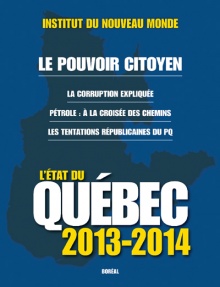That is right! I am leaving the Geomatics and Cartographic Research Centre (GCRC) in Ottawa for a postdoctoral research position at the National Institute for Regional and Spatial Analysis (NIRSA) in Maynooth Ireland
I leave the GCRC on Aug. 23rd, my academic home of 11 years, at Carleton University in Ottawa under the directorship of D. R. Fraser Taylor to work with Rob Kitchin on the Programmable City Project at NIRSA, National University of Ireland at Maynooth, funded by the European Research Council (ERC). I officially start September 1st and leave Canada on the 25th.
My primary focus will on the following research question:
- How are digital data generated and processed about cities and their citizens? with some crossover on
- How are discourses and practices of city governance translated into code?
The particulars will be worked out once the international team gathers for the first time in Maynooth in September. Research activities, reflections and results will be shared on a website or blog once the project gets started. They will of course be disseminated in the usual academic fora.
I will continue to be involved with the GCRC as a member and do watch for the Developments in the Theory and Practice of Cybercartography: Applications and Indigenous Mapping book ed. by Prof. Taylor and myself as associate editor. In addition I will continue to be:
- a member of the Canadian Geomatics Round Table – Legal and Policy Dimension Task Team,
- the Chair of the Canadian Cartographic Association (CCA)Mapping Technology & Spatial Data Special Interest Group,
- and a member of the Research Data Alliance -CODATA legal interoperability of research data working group.
Also, I will continue to monitor issues related to open data and open government in Canada but at a much reduced capacity as I begin to shift my focus on Dublin and Boston, Ireland, the EU and global scales. The Datalibre.ca blog will continue to be co-authored by Hugh McGuire and I and the focus may become more global. Of course, I will continue to post on the CivicAccess list I co-founded with Michael Lenczner, Hugh McGuire, Daniel Haran, Stéphane Guidon, Gabe Sawhney and others. Open data has come a long way in Canada since we founded this first national list in 2005 and I urge you to register, keep up to date and to take it to the next level. It has been a great ride!
I have worked with many community based organizations in Canada on the topic of bringing data &mapping and evidence-based decision making to the social sector. I will not be able to help as much as I did, but will continue to keep my eyes open and share information on issues pertaining to civil society and open data as much as possible. I will of course continue to respond to information requests. My final talk in Canada will be done remotely for the Ontario Nonprofit Network (ONN) Sector Snapshots: NFP Trends & Tactics for a Changing Ontario on September 19.
The work on the SSHRC Partnership Development Grant at the GCRC with Teresa Scassa at the Centre for Law, Technology and Society (CLTS) and the Canadian Internet Public Policy Interest Clinic (CIPPIC) will be coming to a close and final reporting for that is underway, and as discussed work on the book is nearly complete.
I will not be in Canada, but will keep linkages open. I will sorely miss my colleagues at the GCRC (Esp. Peter Pulsifer, Glenn Brauen, Amos Hayes and JP Fiset, and others) as we really grew and flourished together, and I am incredibly thankful to Fraser for being such a great academic advisor and for providing us all with incredible research project experience. I am also sad to say goodbye to the great folks at the Carleton University MADGIC, and the Dept. of Geography, but will not be abandoning the ongoing work on the preservation of data as NIRSA has two data archives! Also, keep your eyes open for the GeoConnections Geospatial Data Preservation Primer that will soon be released in September of 2013 on the GeoConnections operational policies website.
I am looking forward to the move to Dublin, working with Prof. Kitchin and a fantastic new group of colleagues and starting the next leg of this academic career and bid you all aurevoir, and not adieu, as I expect we will all keep in touch, you might visit and we may even conjure some interesting International research collaborations and projects.
I will share new coordinates once I have them, but you can also follow me here:
@traceylauriault (twitter)
tlauriau at gmail dot com

Comments on Posts